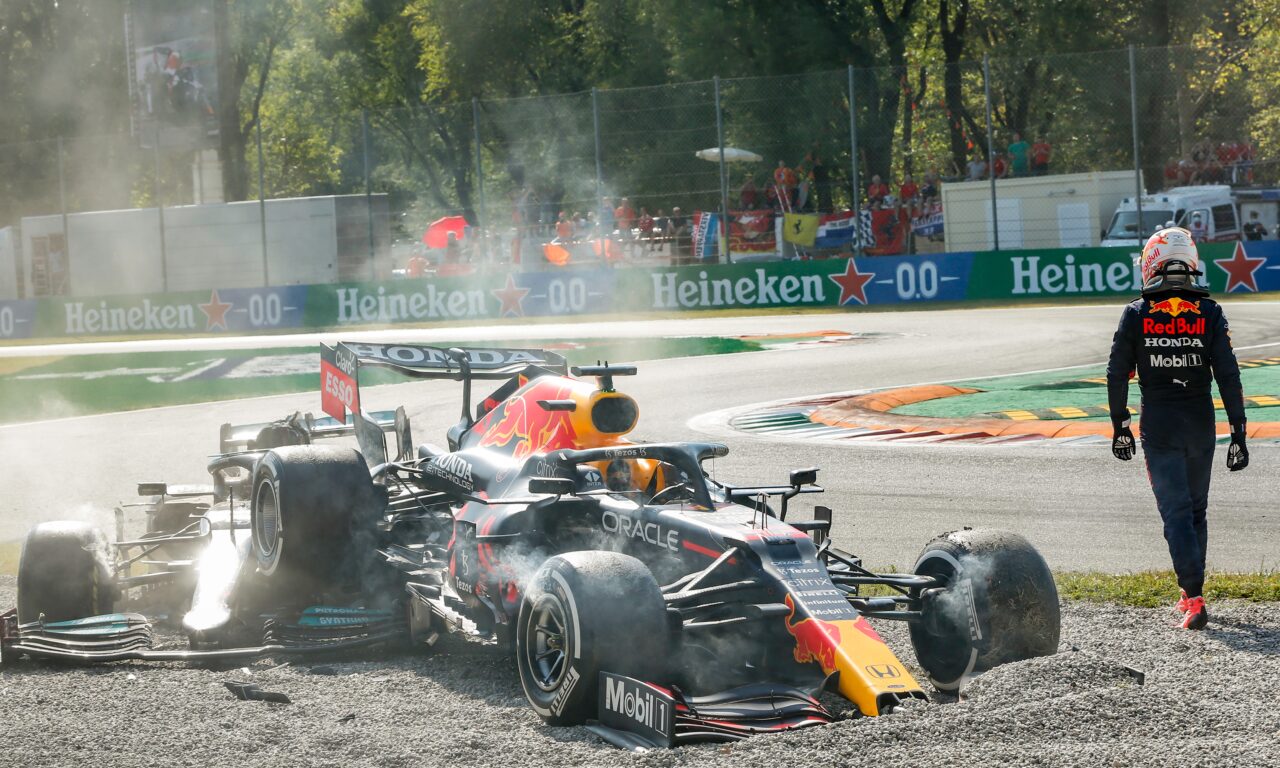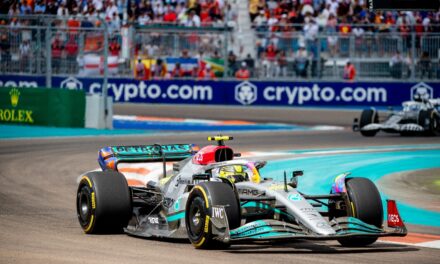Formula 1 crypto sponsors crash out with £830 million in unpaid bills

Scuderia Ferrari this week joined a long list of teams and events forced to cancel lucrative sponsorship deals with struggling crypto firms. Over forty different crypto sponsorship deals collapsed in the last year alone, resulting in £830 million in lost sponsorship value. So, what do these now collapsed deals mean for other sponsors in the industry?
Putting aside complex sponsorship valuation formulas and methodologies, the single greatest measurement of sponsorship value is a market approach. How much have other companies paid for similar deals. Unfortunately, over the last three years, crypto firms have been guilty of artificially inflating the perceived value of sponsorship by agreeing record-breaking deals they can not afford.
Take Chelsea’s shirt sleeve sponsorship deal with Whalefin, for example. In May 2022, Amber Group’s Whalefin agreed a record-breaking £20 million per year shirt sleeve deal with the West London club. This partnership set the marker for all other shirt sleeve deals. Consequently, when the IT services company DXC Technology entered negotiations on a shirt sleeve deal with Manchester United two months later, the price, they were told, was £20 million.
This scenario has played out in many different markets, from basketball in the US to football in Europe and cricket in India. All over the globe, crypto sponsors have been artificially pushing up the price of sponsorship. Teams and events are forced to raise their prices as they desperately try to keep up with their competitors who have secured lucrative crypto-backed deals.
Perhaps nowhere is this more true than in European football, where, as the table below shows, last year alone, twelve different crypto-backed sponsorship deals collapsed. The largest of these was Inter Milan’s deal with Digital Bits worth an estimated £82 million. Sponsors of Esports may also have been met with higher sponsorship fee demands over the last 12, thanks partly to the mega deals FTX agreed with TSM and Riot Games for almost £250 million.
Terminated Crypto Sponsorship Deals
| Team/Event | Sponsor | Value | Sector |
| Team Solo Mid (TSM) | FTX | £173m | Esports |
| Miami Heat | FTX | £111m | Basketball |
| Mercedes F1 | FTX | £98m* | F1 |
| Ferrari | Velas | £98m | F1 |
| Inter Milan | Digital Bits | £82m | Football |
| Riot Games | FTX | £74m | Esports |
| Washington nationals | Terra | £33m | Baseball |
| Major League Baseball | FTX | £21m* | Baseball |
| Chelsea FC | Whalefin | £20m | Football |
| ICC | FTX | £16m* | Cricket |
| UC Berkeley | FTX | £14.4m | College Football |
| Leverkusen | IQONIQ | £11m* | Football |
| Real Sociedad | IQONIQ | £8.8m* | Football |
| Golden State Warriors | FTX | £8.2m | Basketball |
| Washington Wizards | FTX | £8.2m* | Basketball |
| Dallas Mavericks | Voyager Digital | £8.2m* | Basketball |
| Washington Capitals | FTX | £8.2m* | Hockey |
| Landon Cassill | Voyager Digital | £8.2m* | NASCAR |
| Alpha Tauri F1 | Fantom | £3.5m* | F1 |
| Furia | FTX | £3m | Esports |
| FC Zenit | IQONIQ | £3m* | Football |
| La Liga | IQONIQ | £3m* | Football |
| Valencia | IQONIQ | £3m* | Football |
| Evos Esports | Zipmex | £1.6m* | Esports |
| Penrith Panthers RLFC | Zipmex | £1.6m* | Rugby League |
| Central Coast Mariners FC | Zipmex | £1.6m* | Rugby League |
| Wyong RLFC | Zipmex | £1.6m* | Rugby League |
| Alpha Tauri F1 | ICM.com | £1.5m | F1 |
| AS Roma | IQONIQ | £1.5m* | Football |
| Marseille | IQONIQ | £1.5m* | Football |
| Crystal Palace | IQONIQ | £1.5m* | Football |
| Monaco | IQONIQ | £1m* | Football |
| NWSL | Voyager Digital | £0.8m | Football |
| TOTAL | £830.9m | ||
* Estimates based on comparable market data.
There are many other teams and events that are likely to feature on this list in the near future. Atletico Madrid, for example, will be nervously looking at the solvency of their crypto sponsor. The Spanish football team has a deal worth £145 million with Whalefin, who last month had to pull out of a smaller £20 million sponsorship deal with Chelsea.
Elsewhere there are concerns over Crypto.com’s various blockbuster sponsorship deals with F1 and others after the exchange pulled out of a $495 million deal with the UEFA Champions League. An article by Asa Hiken in Ad Age quoted a Crypto.com employee who said the exchange has quietly scaled down all its sponsorships and even tried to pull out of the FIFA World Cup because of the downturn in the value of digital assets.
Could the price we pay for sponsorships be about to fall?
Crypto-backed sponsorship deals have been pushing up the price teams and events charge sponsors. Outside the fanciful world of crypto, traditional sponsors face a challenging economic environment resulting in greater scrutiny of marketing spend and recognising stale sponsorship. Consequently, the volume and budget of remaining sponsors in the market is decreased. Active sponsors, particularly those at the top end of the market, would do well to recognise the spending power they currently have when negotiating and renewing deals. If proposed legislation prohibiting gambling sponsorship goes ahead next year that spending power will only increase.








